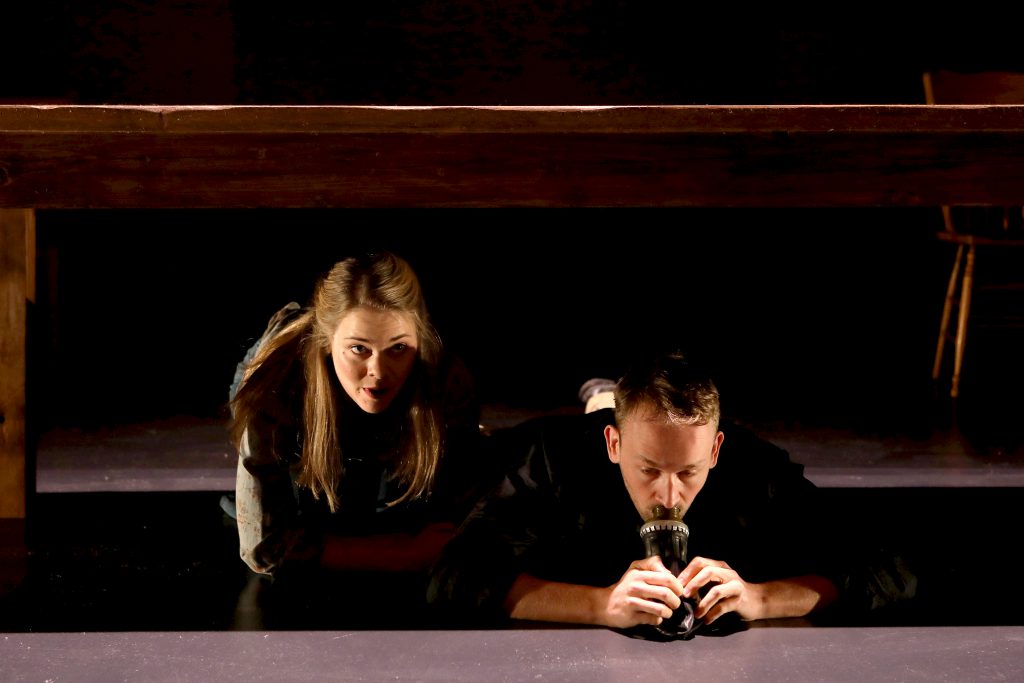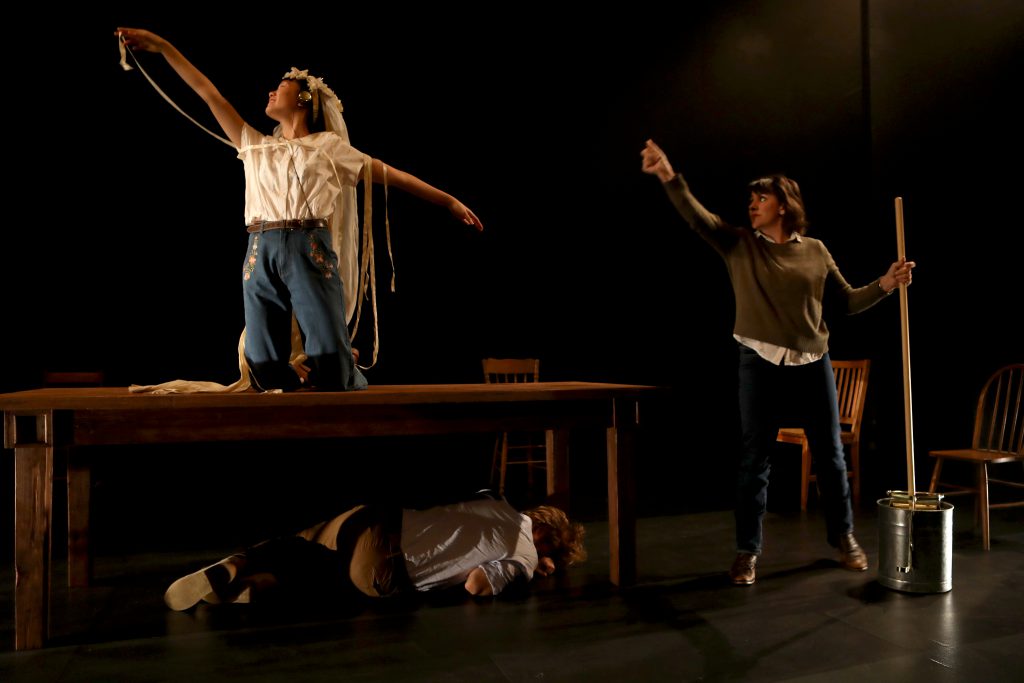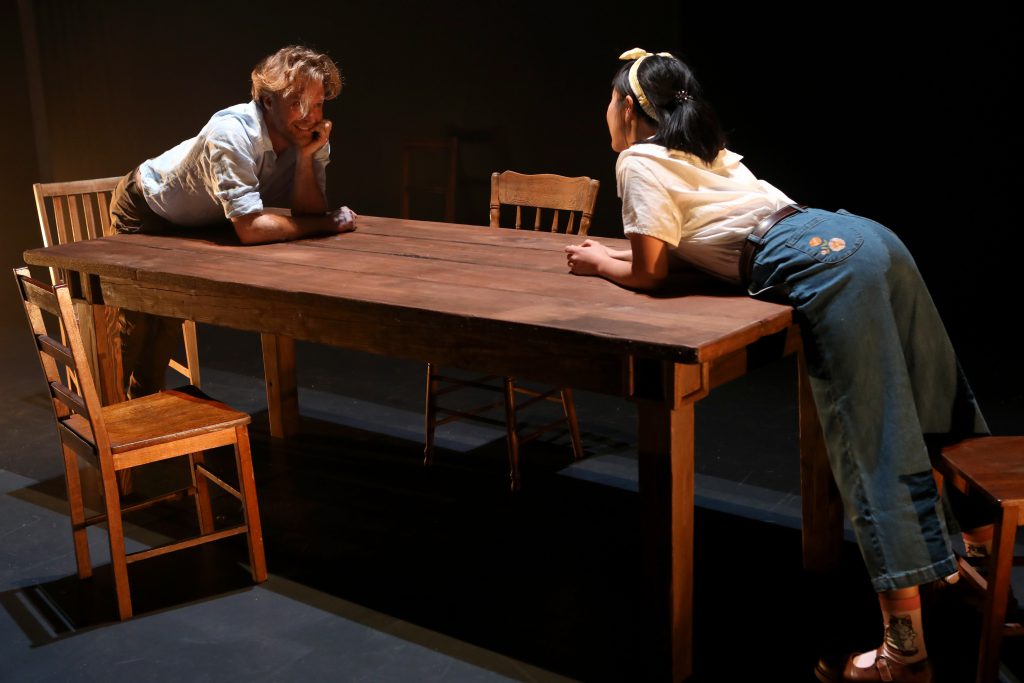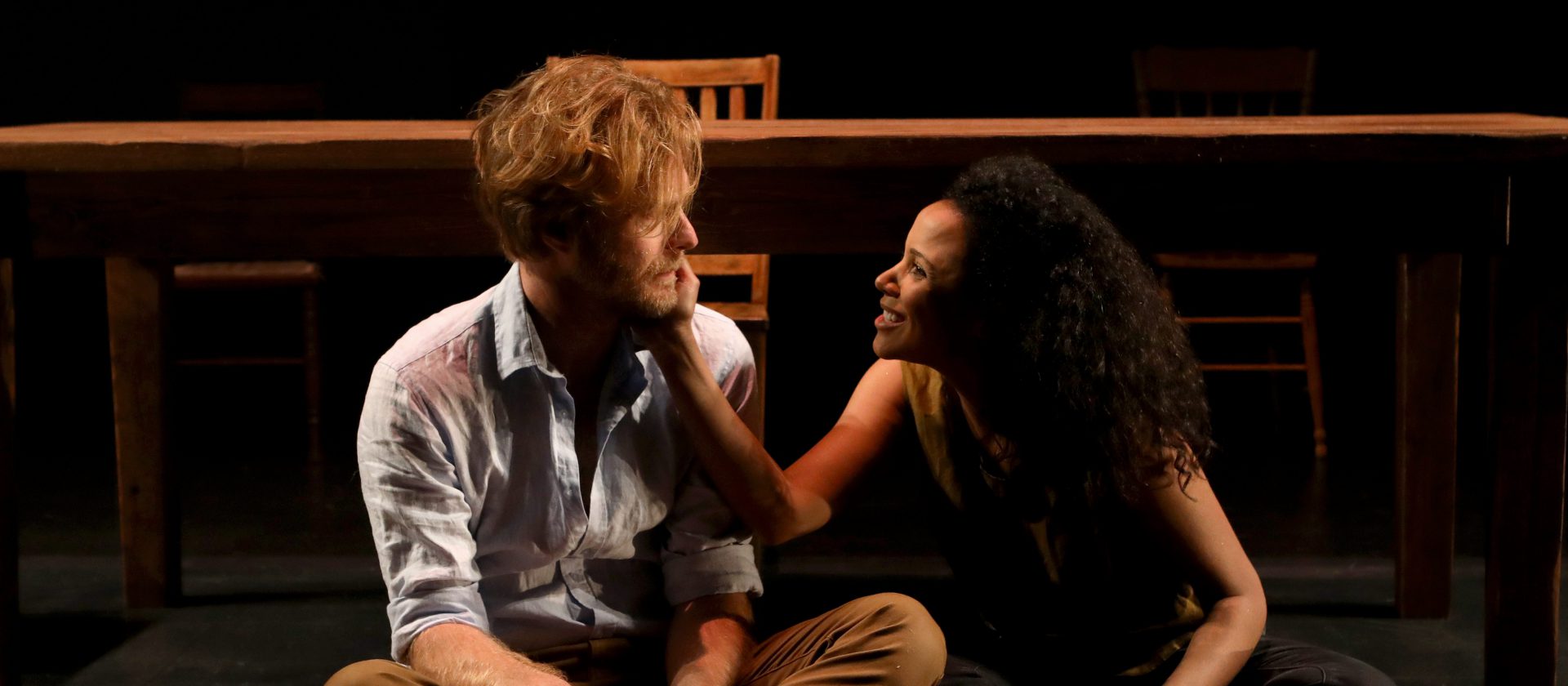All the story, with much of the intensity and attention it demands.
When thinking about how to begin this review of White Box Theatre’s Table, directed by Kim Hardwick and originally written by Tanya Ronder, this writer is left stumped. Does he start by detailing how the script takes one through six generations of the Best family, beginning in late-1800s Ireland and progressing to the modern day? Is it by recalling the particulars of his chat with Hardwick, where she heavily pushes the importance of her 9-member cast who play the show’s 26 characters? Or does he go left-of-centre by talking about the impressive lighting design and composition before anything else?
Well, much like the play, he tries to fit a myriad of elements and ideas into the one space at the one time, managing to make something unexpectedly cohesive even though it takes some time to reach its full strength.

Such ideas are embodied in Hardwick’s show by its characters. An interconnected web of love, lust, heartbreak and hardship link the members of the Best family, a clan that spreads from Europe to Africa and back again. Transgressing linguistic as well as religious barriers (as the play’s consistent use of Swahili and progressive degradation of Catholicism respectively denote), each scene presents an ideological feast for its audience where the slightest of actions have the most immense of consequences. Such consequences are not limited to one moment, however; the subtle return to one line spoken by one character in the 1950s in a scene set during the now shows the deep scars inflicted on the Bests by the Bests.
And it is the actors who portray both the incision that began the bleeding as well as the ever-present blemish that remains that the audience is most drawn to. Hardwick had informed this writer that there is no archetypal ‘lead’ in her production, though it is hard not to recognise Julian Garner as the equivalent in this production. Adopting the roles of Jack and Gideon, of whom the latter is more present throughout the performance, he does very well to manage the demands that this play throws at him. Whether it be the manly bravado coupled with social awkwardness that is Jack the hunter or Jack’s son Gideon, whom he portrays as a brash child, confused teenager, remorseless adult and purpose-seeking grandfather over the course of the show, it is his emotional journey that an audience empathises most with due to both his extensive stage time and acting ability.
Accompanying him in the closest thing to another lead is Danielle King. Again one of the more experienced cast members, she too adopts a multitude of characters – Michelle, Mother Superior, and Barbara to be precise. Whilst her performance as the latter two are somewhat unremarkable (indeed a commonality among many cast members) and Michelle Wiseman is a rather under-utilised character until the play’s final 15 minutes, it is her ability to make those final minutes count that singles her out as a leading talent in the show. The wife to the estranged Gideon and mother of his only son Anthony (Matthew Lee), she brings a sense of deep-rooted frustration that resonates strongly with the audience. Her final monologue exemplifies control and is indeed one the play’s focal points, centralising the flaws of the Bests and communicating a sense of pain the show was so desperately lacking until her climax. The stunned silence of the audience spoke volumes.

Whilst the unremarkable nature of the other individual cast has been noted, this should not be interpreted as saying they were weak. The unfortunate nature of a play that is constantly on rotation between times and contexts means that it is difficult for the audience to develop genuine connections with characters they may only see once every couple of scenes. Therefore, whilst there is an intensity to much of the drama, it is often lost on the audience. The only notable exceptions to this are Stacey Duckworth’s performance as Sarah, ruined nun-turned-mum courtesy of Jack and offspring Gideon, and Nicole Pingon as Su-Lin, surrogate daughter of Anthony Best and Ben Hillier. Albeit with less stage time than Garner or King, they are the only other actors the audience gets comfortable enough with to understand and examine, an outcome which works in their favour.
On a more positive note, the comedy of the performance does come out well. Those involved in the scenes set in a 1960s commune are shining examples of this, and the naive nature of children is well captured by the cast that need adopt such roles. On that end, one may look keenly toward Annie Stafford as either Sister Babette or Aisha or Charles Upton as Albert or Orion, both newer to the scene than some of their castmates but with a strong stage presence nonetheless.
On the design, whilst Linda Nicholls-Gidley’s vocal coaching was a bit more necessary for a cast that at times could do with more retention of accent, Musical Director, Composer and Sound Designer Nate Edmondson has compiled a wonderful list of songs, hymns and audio elements that richly complement the on stage action. The inclusion of such elements, which are sung by the cast, played artificially, or otherwise incorporated naturally, are a fun addition to the show that the audience easily takes to. Credit as well to Isabel Hudson’s sourcing of a table that is oddly perfect for this show in a way that must be seen to be fully understood.

Ultimately, Table is on the whole a great show. It certainly demands investment from its audience at times but balances those out with just enough moments of engagement and clarity of expression well enough to make us forget about that. It’s well worth taking a look, or should I say seat, at.
